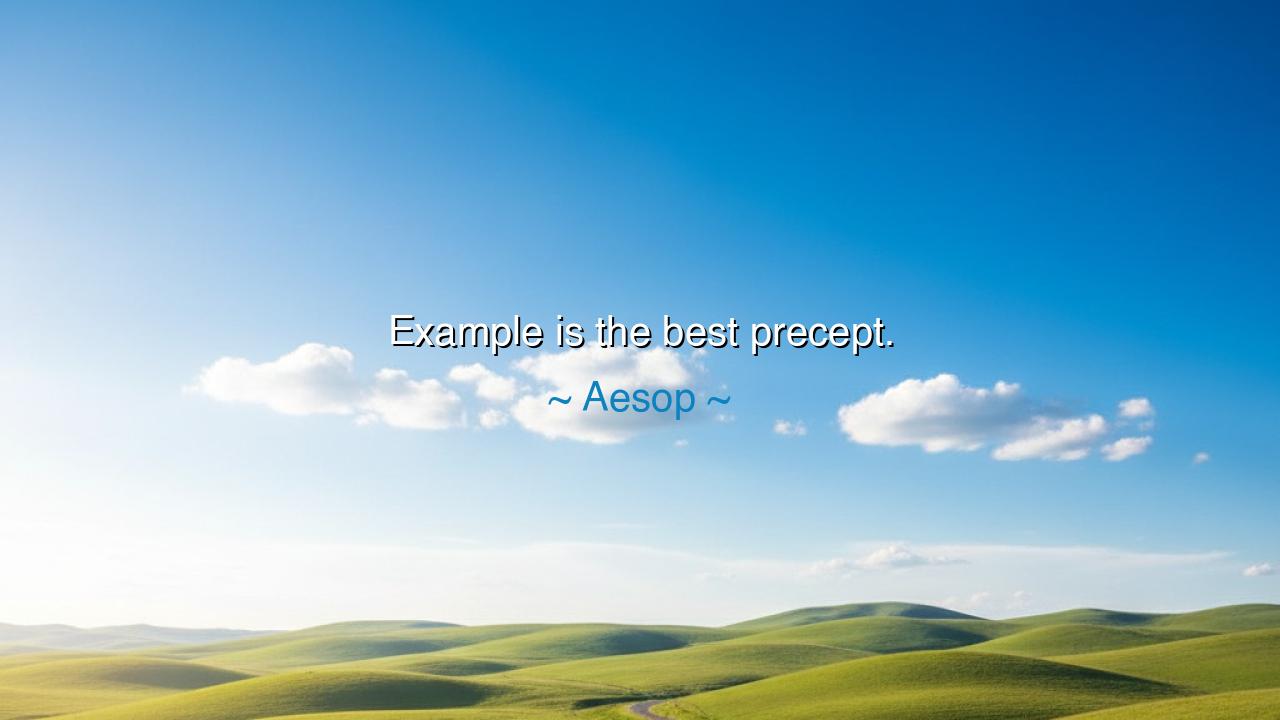
Example is the best precept.






Host: The morning fog hung over the construction site like breath caught between dream and labor. Cranes moved slowly, their steel arms cutting through the mist with mechanical grace. Engines rumbled, metal clanked, and a low radio played an old song about hope and hard work.
In a temporary office built from plywood and determination, Jack stood by the window, his grey eyes tracking the movement of workers below. Jeeny entered, her boots dusty, her face flushed from the morning wind, a clipboard tucked beneath her arm.
The air smelled of cement, sweat, and fresh coffee.
Jeeny: “You’ve been watching them for twenty minutes, Jack. You look like you’re counting every mistake they make.”
Jack: “They’re not following the schedule. If they keep cutting corners, we’ll lose the contract. I’ve told them a dozen times — efficiency is about discipline, not instinct.”
Host: His voice was steady, measured, but his jaw tightened as he spoke. He tapped the glass, gesturing toward a worker lifting a beam at the wrong angle.
Jack: “See that? He’s supposed to wait for signal. But no, he thinks he knows better. One mistake like that and someone gets hurt.”
Jeeny: “Maybe he learned that from you.”
Host: Jack turned, a flicker of irritation breaking through his calm.
Jack: “What’s that supposed to mean?”
Jeeny: “It means, you tell them to be patient, but you rush every deadline. You preach teamwork, but you don’t listen. You set the tone, Jack — whether you like it or not.”
Host: Her words hung in the air like dust caught in light. The machines outside paused, and for a moment, the only sound was the wind scraping against the tin roof.
Jack: “I’m the boss, Jeeny. My job is to set expectations, not to play the example. If I spent all day proving myself, nothing would get done.”
Jeeny: “That’s exactly why nothing changes. You give orders, but no one feels them. Aesop said it — ‘Example is the best precept.’ You lead with your mouth, Jack, not your hands.”
Host: Jack laughed, a dry, brittle sound, like metal cracking under stress.
Jack: “You really think I should trade my office for a hardhat? That’s symbolism, not leadership.”
Jeeny: “No, it’s integrity. You want loyalty? Show them what it looks like. You can’t teach a man to care by shouting at him from above.”
Host: A gust of wind rattled the windowpane, whistling through a crack near the corner. Jack’s fingers drummed against his desk, a habit of impatience.
Jack: “So what, I’m supposed to prove myself every day? I’ve been doing this for fifteen years. I’ve earned the right to direct, not to demonstrate.”
Jeeny: “You’ve earned the title, not the trust. There’s a difference.”
Host: Her tone was gentle, but her eyes burned with conviction. Jack’s face hardened, but something inside him shifted — a faint, unwanted recognition.
Jack: “You’re telling me those men don’t respect me?”
Jeeny: “They respect your position. Not your presence. You lead like a statue, Jack — solid, cold, and still.”
Host: The words landed like stones, heavy, honest. Outside, a foreman yelled, and a hammer clanged like an echo of their conflict.
Jack: “You’re idealizing example, Jeeny. The real world runs on orders, not lessons. A general doesn’t fight on the front line; he strategizes.”
Jeeny: “But even a general must have bled once, Jack. Otherwise, his soldiers can’t trust him. They need to know he understands the cost of what he asks.”
Host: She walked closer, the mud from her boots leaving faint prints on the floor, like traces of reality following her words.
Jeeny: “Look at Gandhi. He preached non-violence, but he lived it — marched, fasted, suffered. He didn’t just speak about change; he became it. That’s why people followed him. Because he embodied what he asked of them.”
Jack: “You can’t compare a construction project to a revolution.”
Jeeny: “Can’t I? Every day these workers build something bigger than themselves. That’s not so different from hope.”
Host: The fog began to lift, revealing the skeleton of the building — steel rising against the grey sky, fragile but determined.
Jack stepped closer to the window, eyes following a young worker who paused to help an older one lift a panel. Their movements were slow, but synchronized — a silent example in motion.
Jack: “Maybe you’re right about one thing. People don’t learn from words. They learn from watching.”
Jeeny: “Then show them something worth watching.”
Host: The tone of the morning shifted. The fog thinned, the light grew brighter, and the site came alive again with movement.
Jack put on his helmet, grabbed a pair of gloves, and walked toward the door.
Jeeny: “Where are you going?”
Jack: “To fix the angle on that beam.”
Jeeny: “Jack…”
Jack: “Don’t say it. Just watch.”
Host: Outside, the workers stopped, surprised, as Jack joined them, kneeling beside the beam, his hands steady, his movements precise. He lifted, adjusted, explained, his voice low but clear. The men watched, nodded, learned.
From the window, Jeeny stood, smiling, her eyes soft with something close to pride.
The sun broke through the fog, lighting the steel skeleton in gold. It looked, for a moment, less like a building, and more like a lesson — rising, solid, earned.
Host: And in that light, a simple truth shone through the noise of engines and commands:
That example doesn’t speak.
It shows.
And in showing, it teaches more than words ever could.
Host: The camera would pull back now — Jack and Jeeny, standing in the morning sun, the site alive, the world still turning, but something inside it changed — a small, human miracle of understanding, built, not spoken.






AAdministratorAdministrator
Welcome, honored guests. Please leave a comment, we will respond soon